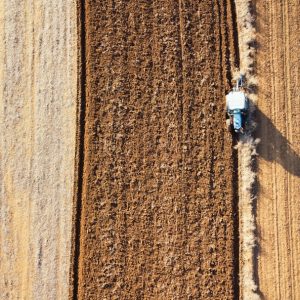The Green Revolution helped India avert famine in the 20th century by boosting agricultural productivity, but its heavy dependence on synthetic fertilizers and pesticides created long-term environmental and health challenges. As a result, organic farming is gaining momentum, combining scientific advances with traditional practices to produce healthier food while restoring soil quality. Amit Singh of Nature Bio Foods describes this approach as beneficial for both farmers and consumers, enabling the production of sustainable, high-quality food while ensuring farmers are fairly compensated.
Nature Bio Foods’ work was recognized with a ONE World Innovation Award for its comprehensive “farm to table” sustainability model. The company has reduced carbon emissions through solar energy adoption and innovations that limit methane emissions from rice cultivation. By supporting nearly 100,000 smallholder farmers and reinvesting profits into community development—such as clean water projects and school funding—the company is creating lasting social impact.
These achievements are rooted in strong public–private partnerships. Nature Bio Foods collaborates closely with the Indian government and receives technological and investment support from the United Nations Industrial Development Organization (UNIDO) as it scales its operations. Speaking at UNIDO’s Global Industry Summit in Riyadh, Singh illustrated how such partnerships enable sustainable industrial transformation across developing countries.
A central theme at the Summit’s Partnerships and Investment Day was the emerging role of artificial intelligence in solving real-world challenges. UNIDO’s AI and innovation lead, Jason Slater, emphasized that AI’s value lies not in popular tools but in its ability to address practical problems. One example is a startup creating an AI chip capable of “smelling” food to detect waste and improve industrial efficiency. AI is also being used to help governments, the private sector, academia, and development organizations collaborate more effectively by defining challenges and identifying solutions.
As new technologies accelerate, UNIDO positions itself as a trusted partner ensuring that innovation is guided by ethical principles and inclusive development. Whether improving shrimp farming in Vietnam or advancing smart manufacturing in Tunisia, the focus remains on ensuring that communities in the Global South benefit from rapid technological progress without being left behind.






